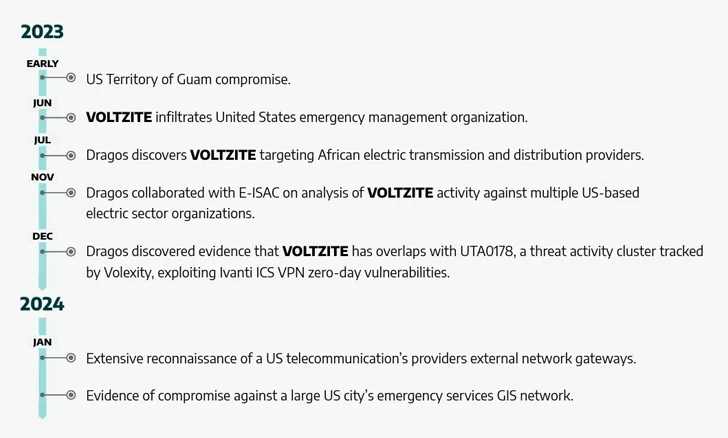A few years ago, opening stores in Europe was a hot topic among North American venture capital firms. The market has attracted companies of all sizes, from OMER and Lightspeed to Bessemer Venture Partners, and Spotify’s IPO appears to have awakened North American venture capital firms to Europe’s potential to create massive exits. Venture capitalists want to make sure they don’t miss out on the next wave.
But it’s unclear whether they will be able to catch it. The trend hasn’t completely reversed since the good old days of 2021, but it’s very close.
Despite this, the European startup market has grown rapidly over the past decade. According to PitchBook data, transaction volume more than doubled during this period and many success stories emerged, such as Klarna, Deliveroo and Arrival. North American venture capital firms understandably want a piece of this market, but developing a successful long-term strategy in the region has proven difficult.
Big-name firms such as Coatue and OMERs have officially exited the region in recent months, while the venture funds that remain have been significantly less active. PitchBook senior analyst Navina Rajan said the total value of European deals with at least one U.S. investor fell 57% in 2023 compared with a year ago, and the number of deals fell 39%. In comparison, overall transaction value fell by 46% and the number of transactions fell by 31% during the same period.
There are nuances in the European startup market that make it difficult for North American investors. Each country in Europe has its own language and sometimes currency. Investing in Romania and Italy is different from investing in Texas and California.Additionally, the networks startups and universities create for European startups are different from those in the U.S.
Taken together, all of these nuances make the market challenging at the best of times, let alone the downturns of the past few years. No wonder North American investors have struggled to find a solid footing as they attempt to cross the Atlantic.
Easier said than done
Another reason North American VCs are struggling in the European market is that while their interest in the ecosystem is growing, so is the European VC market. Competition for the best deals is fiercer these days, especially in the early stages when prices are lowest and the potential for huge returns is highest.
Sten Tamkivi, a partner at Estonian operator-led venture capital fund Plural, told TechCrunch that the startup market has changed dramatically since he started as a founder a decade ago. Early-stage startups in Europe used to default to the United States for funding, but that is no longer the case, he said. “In the past decade, early-stage investment has shifted more towards local companies; 80% of the capital deployed in Europe is European,” he said.
Tamkivi explains that unless a startup plans to expand to the U.S. immediately, rather than launching operations in other European countries first, it makes more sense to work with local investors who understand the nuances of the local market. He added that Europe doesn’t have as much venture capital in later and growth stages, meaning startups can attract those investors later while focusing on local markets in the early stages.
It probably doesn’t help that most North American venture capital firms have offices in London, which is no longer part of the EU and is simply one of the region’s startup hubs. Being “down to earth” in London is not the same as being “down to earth” elsewhere on the continent.
“A lot of American traffic stops in London,” Tamkivi said. “[The market] More diversity. If you set up shop in London, this may or may not give you an idea of Copenhagen. Once you arrive in the UK, you may need to put in some effort. “
This focus on the UK has also increased competition for London deals, making it more difficult for North American GPs to secure shares. It also means they may overlook opportunities elsewhere.
These dynamics explain why companies like General Catalyst merge with European seed-stage companies. General Catalyst said in October it would merge with Berlin-based La Famiglia. General Catalyst already invests in the region through its London office but said the partnership would help it better invest in early-stage opportunities across the continent.
Borys Musielak, a founding partner at SMOK Ventures, said he had failed deals with U.S. investors in recent years, but many of them are now pulling out of deals. He hopes the pullback will allow his firm to capitalize on strong trading from its new fund.
“I think those guys are going to have to wait a while,” Musilak said. “So this is actually an opportunity for me and our friends who raise capital for this region. We will be able to participate in all the top deals in the local ecosystem. The American players will participate in the Series A or Series B regardless.”
Reasons to keep working hard
Despite all these challenges, North American companies are still trying to establish themselves in the region. While some firms are exiting in 2023, both Andreessen Horowitz and IVP have opened offices in London.
There’s a good reason why many companies are still trying to set up shop: regulation. Hot new categories, including artificial intelligence and cryptocurrencies, continue to operate in a regulatory gray area in the United States, with no real clear future for these industries. This makes it more difficult to build new companies and harder for investors to know which companies are compliant – or even if they will be compliant in the future.
This is not to say that Europe already has all the regulations in place; Regulators there are not as lenient to companies in these new industries as they should be, but they at least know what they want to see. A16z’s London office focuses on blockchain and cryptocurrencies, possibly for this reason.
US limited partners are also showing increasing interest in Europe. When Plural raised its first fund in 2022, Tamkivi and his team formed a partnership with U.S. endowments in the hope that it would lead to follow-on investments. But to their surprise, many decided to invest in the fund and cut even bigger checks for the firm’s most recent Fund II.
David York, founder and managing director of fund-of-funds Top Tier Partners, said limited partners have long sought a way to invest in managers backing new European startups, with interest following the success of companies such as Spotify. Increases rather than decreases. He suspects that number will continue to rise as large markets such as China become less attractive.
“Europe becomes more reliable as a creator of results,” York said. “It originally started with Spotify, but over the last six years we’ve had a lot of liquidity there [to] 7 years. I do think there are tailwinds as China looks inward and globalizes. I think Europe will eventually become one of the international markets where people want to do business. “
Both Rajan and Musielak from PitchBook believe that despite the growth of the European ecosystem and the difficulties faced by North American venture capital firms, it is still largely under-penetrated. So there is definitely room for international venture capital firms to set up shop and build portfolios. Businesses just need to develop a strategy to ensure their efforts are rewarded.
from Tech Empire Solutions https://techempiresolutions.com/for-north-american-grand-prix-europe-remains-tough-to-crack/














 Non-bank B2B fintech company Convera has completed its acquisition of Western Union Business Solutions (WUBS). WUBS was acquired by private equity firms Goldfinch Partners and The Baupost Group in 2021 for $910 million and renamed Convera, a new independent payments business.
Non-bank B2B fintech company Convera has completed its acquisition of Western Union Business Solutions (WUBS). WUBS was acquired by private equity firms Goldfinch Partners and The Baupost Group in 2021 for $910 million and renamed Convera, a new independent payments business.
